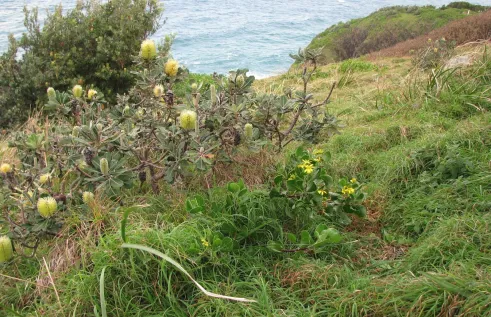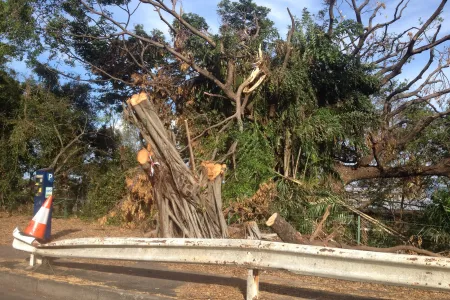New project to tackle disaster waste management in remote communities
Remote Northern Territory communities faced with hazardous wastes, slow recovery and displacement after natural disasters will become equipped to manage disaster waste, after a Charles Darwin University-led (CDU) project received major federal funding.
The three-year project, led by CDU’s Northern Institute, has been granted $365,876 through the Australian Government’s Disaster Ready Fund to develop Disaster Waste Management (DWM) plans for three remote NT communities.
Lack of DWM plans result in slow and costly recovery for the government, as well as adverse health and social impacts on the remote community residents.
The project will increase understanding of risk from natural hazards by developing predictive models for calculating waste volumes and waste streams arising from different natural hazards.
By improving the shared understanding of the measures that are required for managing disaster waste, it will build capacity and preparedness in stakeholders responsible for managing waste from disasters.
The project will be led by Northern Institute’s Senior Research Fellow Dr Deepika Mathur and CDU’s Information Technology Professor Sami Azam, as well as Dr Robin Gregory from Regional Development Australia NT, and independent researcher Dr Stephen Sutton who have all conducted extensive research into waste management in Northern Territory communities.
The research team will work in consultation with NT regional councils, ranger groups, and a wide range of stakeholders involved in managing disaster waste.
“As demonstrated by the recent flooding in Lismore and Cyclone Marcus in Darwin, recovery from natural disasters is increasingly becoming longer, costly and at times challenging for ecologically fragile regions,” Dr Mathur said.
“Currently there is limited understanding of the volumes and types of waste streams arising from disasters. This makes the planning for temporary storage, sorting and removing disaster waste from communities difficult.
“A DWM plan also provides an effective and connected knowledge system that will provide a solid foundation with knowledge of waste volumes, waste streams and processes. The framework will allow various stakeholders to collaborate and populate it with data, and tailor it to suit their community.”
The project will produce an invaluable framework to manage waste from disasters such as cyclones, fire, flooding, earthquakes, storms, heat and tsunamis.
The framework will then be able to be used by other NT remote communities to develop their own DWM plans.
The project is expected to commence from mid-June 2025.
Related Articles

Nanoplastics hindering cognitive abilities of fish, international research shows
Nanoplastic exposure can impair the cognitive abilities of fish and could lead to significant impacts on marine species’ ability to survive, according to a new international study.
Read more about Nanoplastics hindering cognitive abilities of fish, international research shows
New project to grow Indigenous aquaculture on one of Australia’s largest islands
An Australian island’s efforts to improve food security and transition into a blue economy will be bolstered by a new project to propagate a nutritious and increasingly popular fish.
Read more about New project to grow Indigenous aquaculture on one of Australia’s largest islands
Potential for satellites and AI to help tackle critical invasive species problem
Satellite imagery and artificial intelligence can detect with high accuracy two invasive weed species in Australia, posing a new opportunity for defense against these pervasive plants.
Read more about Potential for satellites and AI to help tackle critical invasive species problem
